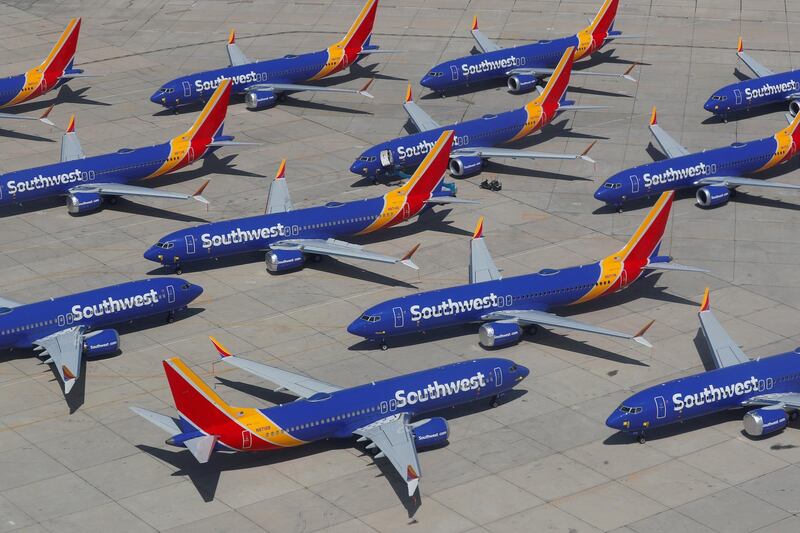Boeing shares were up as much as 1 per cent on Thursday on news that the planemaker has made software changes to its troubled 737 Max jets, as mandated by US regulators in the wake of two fatal accidents in the past five months.
On Wednesday night, Boeing announced changes to flight control systems linked to crashes of an Ethiopian Airlines flight on March 10 and Lion Air flight on October 28 last year.
Both crashes involved the Max 737 jet, Boeing’s best-selling “workhorse” jet, prompting aviation authorities and Boeing to ground the more than 350 planes worldwide and halt deliveries pending the outcome of further investigations.
“We are working with customers and regulators around the world to restore faith in the industry and to reaffirm our commitment to safety and to earning the trust of the flying public,” Mike Sinnett, vice-president of product development, commercial airplanes, at Boeing, told reporters in a conference call on Wednesday night.
As part of the upgrade – which is subject to approval from regulators – Boeing said it will install a standard warning system that was previously an optional safety feature, and airlines would no longer be charged an additional cost for that safety system to be installed.
The aircraft manufacturer has also upgraded the software linked to the crashes, Mr Sinnett said. The Manoeuvring Characteristics Augmentation System (Mcas) is designed to keep a plane from stalling by reacting to a sensor that detects whether it is climbing at too steep an angle. If it is, the software automatically commands the plane’s nose downwards.
Investigators in Indonesia have said the sensor malfunctioned and emitted faulty data that caused the Mcas system to repeatedly push the doomed Lion Air Flight 610 plane nose down towards the ocean.
The US Federal Aviation Administration has since stated that there are similarities between the Lion Air crash and the Ethiopian accident earlier this month. Boeing last night said the most significant change to the Mcas software is the addition of data from a second sensor, which measures the horizontal angle of the plane.
The software will now disable Mcas if it receives conflicting data from the two sensors. However, Boeing said the software upgrades were not an admission that the system had caused the crashes.
Investigators have yet to determine the cause of the accidents, and it is still unclear when the planes will be allowed to fly again.
The delivery delays, pending the investigation, could cost Boeing about $400 million per month in cash flow losses, in addition to compensation fees, according to research by Bloomberg Intelligence.
The software changes also require approvals from regulators before they can be rolled out.
“We work in an industry that is continually learning, and as a result, air travel has been getting safer and safer for decade after decade,” Mr Sinnett added during the conference call.
“Our hearts go out to all of those who were affected by these tragic accidents and we mourn the loss of life.
“We’re going to do everything we can to ensure that accidents like these never happen again.”







